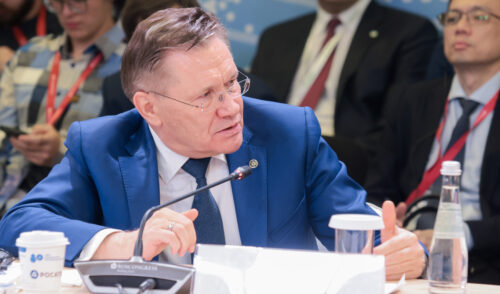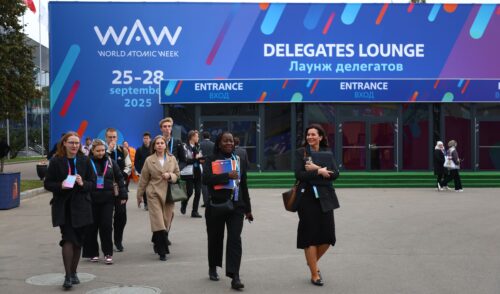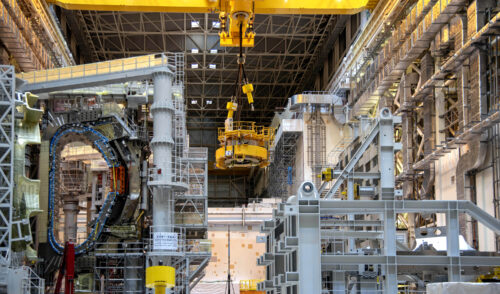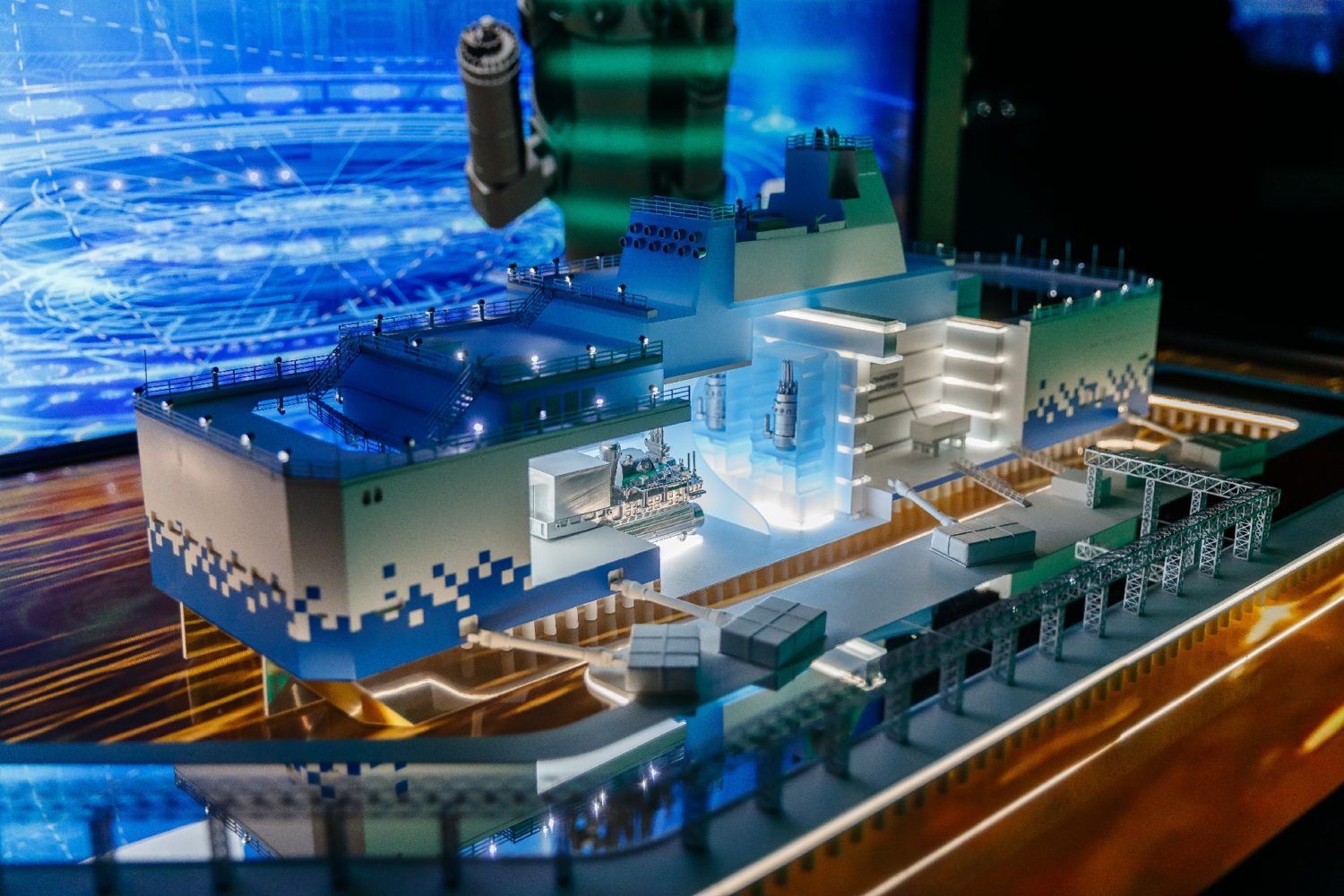
Small Reactors for Large Region
back to contentsSmall modular reactor nuclear power plants (SNPPs) are a perfect power supply option for remote regions. Such plants are reliable sources of ‘clean’ electricity, while their capacity can vary by site depending on specific requirements. Rosatom is expanding the line of SNPP solutions available to its partners.
Many regions of the world are facing an acute shortage of power or have no access to electricity at all. According to the Sputnik Brasil news agency, there are 212 isolated towns in Brazil, most of which are concentrated in northern parts of the country. The island of Fernando de Noronha in the state of Pernambuco and several towns in the state of Mato Grosso supplement this list.
Nuclear power plants with small modular reactors can be an effective solution to the power supply issues in such areas. Their major advantages are modular design, scalability, fast and flexible power ascension, shorter construction time, low environmental footprint, reliability of power supply, and a fixed electricity tariff throughout the entire service life of the plant. In addition, construction of small-scale nuclear generation facilities may become a driver of economic development for the host communities.
Small modular reactors (SMRs) have emerged as a global trend in the nuclear power industry. According to the IAEA, there are about 70 different SMR designs at different stages of development worldwide.
With Russia operating the world’s only floating nuclear power plant (FNPP) Akademik Lomonosov, Rosatom has a leading position in this segment. Moored offshore at Russia’s northernmost town of Pevek, the FNPP is equipped with two KLT 40S reactors with the capacity of 35 MW each. Its primary purpose is to supply low-carbon electricity to Pevek and its neighborhoods, as well as to the mining operations in the region.
Another SNPP is being constructed in Yakutia. This one will be an onshore plant with the latest RITM 200N reactor. Reactors of the same type have been successfully used to power Russian nuclear icebreakers. RITM 200 reactors will also be installed on a series of new floating nuclear power units now under construction by Rosatom.
Another unparalleled design in Rosatom’s product range is SHELF-M, an integral plant with a water-cooled water-moderated reactor. The total weight of the fully operational module is 370 tonnes with the reactor included. That means it can be moved from one site to another when necessary.
Partnership between Russia and Brazil
Latin American countries are considering the possibility of building SNPPs. This spring, Brazilian Minister of Mines and Energy Alexandre Silveira spoke in favor of the deployment of small modular reactors. Brazil needs to ‘sow the seeds’ for building a nuclear power supply chain with a focus on small modular reactors, Sputnik Brasil quoted Silveira as saying.

Brazil and Rosatom have long been working together in nuclear technology. For instance, the Russian nuclear corporation signed a long-term contract to supply the full needs of the Angra NPP in enriched uranium products for 2023–2027.
Experts from Brazil, Russia and other countries discussed the prospects of small modular reactors at the annual symposium of the Latin American Section of the American Nuclear Society (LAS/ANS Symposium) held in mid-July in Rio De Janeiro. Celso Cunha, President of the Brazilian Association for the Development of the Nuclear Industry (ABDAN), raised the issue of energy supply in remote regions: “The situation in these places can be changed by new technologies of the nuclear industry, especially SMR, which are capable of guaranteed and safe production of clean energy,” Celso Cunha said.
During the symposium, Ivan Dybov, Vice President of ABDAN and Director of the Rosatom Latin America Regional Center, noted the need for broad cooperation in the nuclear industry. “Knowledge sharing and regional cooperation are key to the development of nuclear technologies that can help mitigate the effects of climate change,” Dybov commented.
In April this year, a delegation from Rosatom visited production facilities of Brazil’s state-owned company Nuclebrás Equipamentos Pesados S.A (Nuclep) in Itaguai. During the visit, Ilya Vergizaev, Executive Director at REP (part of Rosatom), mentioned Brazil’s growth potential in the nuclear sector. “Brazil is well-positioned to further distinguish itself on the global nuclear arena, and we are here to explore how we can help achieve this,” he said.
Nuclep Administrative Director Oscar Moreira Filho was optimistic about the discussion, pointing to the diversity of partnership models, which span construction of conventional nuclear reactors and investment in small modular reactors.
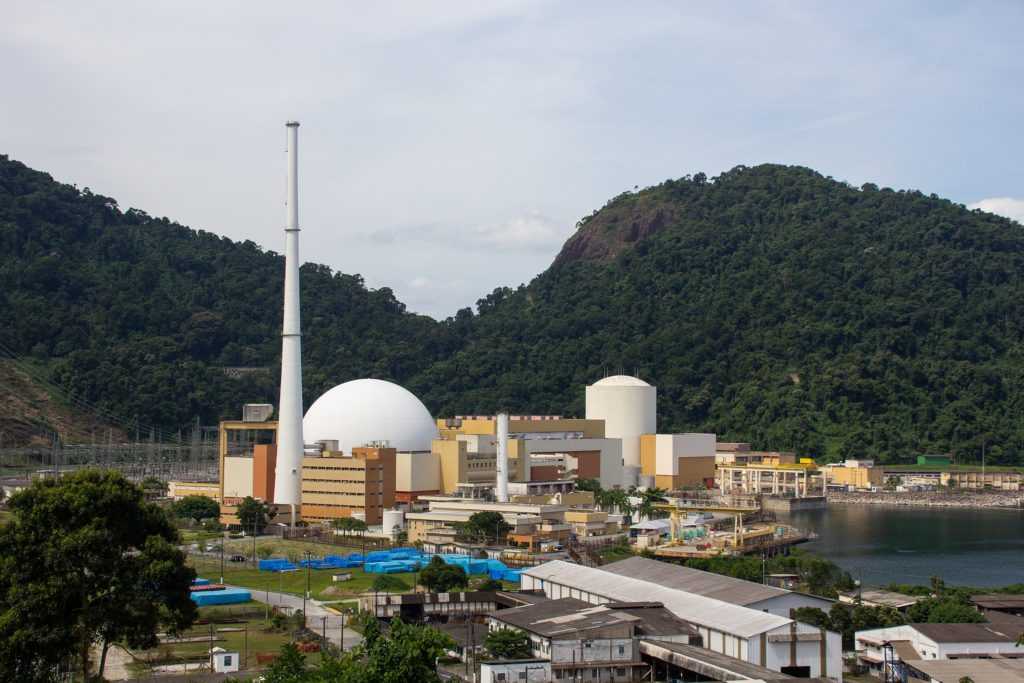
According to Sputnik Brasil, other Brazilian officials and experts also praise the prospects of potential partnerships between Russia and Brazil in the SMR field. The news agency quotes Leonam Guimarães, Technical Director of the Brazilian Association for the Development of Nuclear Activities (ABDAN) and Scientific and Technical Committee Coordinator at Amazônia Azul Tecnologias de Defesa S. A. (Amazul), as saying that Russia has expertise and advanced technologies in engineering offshore nuclear power plants. According to Guimarães, these technologies could be adapted to the needs of remote areas in the Amazon region with limited power transmission infrastructure. “This partnership could accelerate the development and deployment of floating nuclear power plants in the Amazon, benefiting our two countries in terms of technological exchange, energy security and sustainable economic development,” Guimarães said.
Fabio Krykhtine, Professor at the Industrial Engineering Department, Polytechnic School of the Rio de Janeiro Federal University (UFRJ), and Special IR Coordinator for Russia at the UFRJ General Superintendency, notes that Brazil and Russia converge on many issues and have similar views on cooperation thanks to active bilateral contacts within the BRICS intergovernmental organization. The professor believes that the two countries could establish an alliance for the development of SMR technologies, according to Sputnik Brasil. “The partnership between Brazil and Russia in nuclear energy seems both viable and strategically important as it brings forward advances in energy and technology,” the scientist emphasized.


